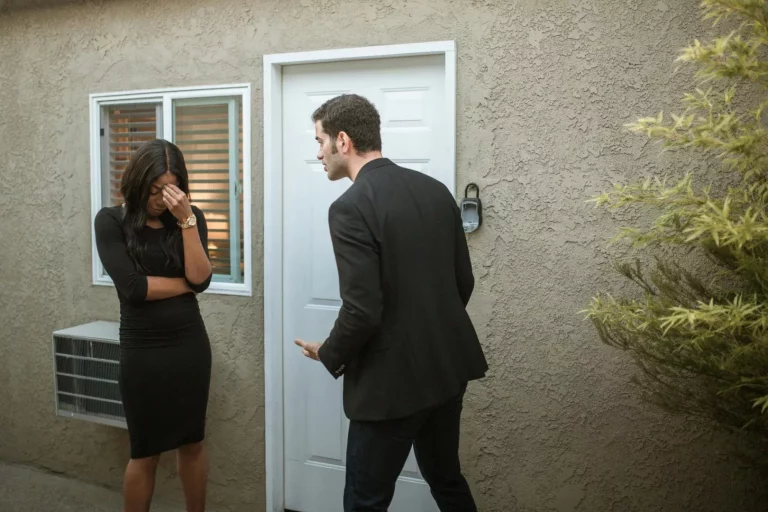Fear of Commitment after Divorce: Causes and Solutions
Have you ever felt scared to commit again after going through a divorce? At TheBostonDivorceLawyer, we understand the fears and uncertainties that come after a marriage ends. In this article, we will explore the reasons behind the fear of commitment after divorce and provide helpful tips for moving forward.
According to research published in the Journal of Divorce & Remarriage, fear of commitment after divorce is a common emotional response that can result from past hurt or trauma. The study also found that individuals who have experienced a difficult divorce may struggle with trust issues and the fear of being hurt again in future relationships (Feldstein, S., & Brodsky, 2018).
Causes of fear
After a failed marriage, trust issues can develop from past hurt and betrayal. Fear of getting hurt again may make someone cautious about fully investing in a new relationship. There might also be worries about losing the independence and freedom that come with being single.
Bad experiences in past relationships can create doubt and uncertainty, making it hard to fully trust and open up to someone new. Fear of repeating past mistakes and ending up in another failed relationship can lead to holding back.
The emotional pain of divorce can also contribute to fear of commitment. The trauma from a broken marriage can leave emotional scars, making it tough to start a new relationship. Come to think of it, the fear of being vulnerable and hurt again can cause someone to build walls and keep a safe distance from potential partners.
Societal pressures and expectations can also play a role in fear of commitment after divorce. The fear of judgment from others, fear of failing again, and fear of not meeting expectations can all make someone hesitant to fully commit to a new relationship.
Emotional trauma
People who have gone through a divorce often feel scared because of the emotional pain they experienced during their marriage. This hurt can make it difficult for them to trust someone new. They may worry about getting hurt again and find it hard to open up to a new partner. The fear of commitment might come from feeling vulnerable in a relationship. They fear being rejected or abandoned again.
The emotional pain from the divorce can stick around and make moving on tough. It may lead them to build walls to protect themselves from further hurt. Come to think of it, they might feel inadequate and think they are not worthy of love. This fear can make them avoid commitment because they don’t want to go through another failed relationship.
Sometimes, the fear of commitment after divorce is due to unresolved issues from the past. They might carry emotional baggage from their previous marriage that makes it hard to trust again. It’s important for them to deal with these emotions and heal from their trauma before they can fully commit to a new relationship. Only then can they truly open up and let someone new into their lives.
Trust issues
They might be afraid of getting hurt or betrayed like before. This fear can make it tough for them to commit to a new relationship. They worry that the same bad things will happen again. They might be scared to open up and be vulnerable. Past hurt can stick around and make it hard to trust someone new. They may doubt their own judgement and suspect others’ intentions.
When all is said and done, this fear can create distance in relationships and stop them from moving forward. Letting their guard down and being fully present in a new relationship can be hard. Building trust takes time and effort, and some may struggle to take that step again. Fear of commitment after divorce is common for many who have gone through broken trust. It can make it hard to fully connect with someone new and move on from the past.
Communication
In other words, this fear can come from past hurts and betrayals. They might find it hard to share their worries with their new partner, leading to misunderstandings and fights. Talking is important to deal with these fears. By being open and honest, people can build trust in their relationship. But the fear of commitment might stop them from sharing their true feelings, causing communication problems.
Frankly, this lack of talking can create distance and hurt the relationship. It’s important for people to face their fears and talk openly with their partner to get past the fear of commitment. Getting help from a therapist or counselor can also improve communication and ease the fear of commitment.

Self-reflection
In other words, this fear can come from wanting to avoid future pain and heartbreak. It’s important to look inward and think about your own thoughts, feelings, and actions. This self-examination helps you understand your fears and insecurities about commitment. You might discover past events or beliefs affecting how you think now.
Let me explain, it can also show you any patterns or habits that stop you from fully committing to a new relationship. Looking into yourself in this way can give you clarity and understanding, helping you make better decisions about your relationships. By taking the time to think about your feelings and past experiences, you can work on overcoming your fear of commitment and opening up to the chance of a happy, new relationship.
The Final Thoughts
Bringing together earlier ideas, in conclusion, the fear of commitment after divorce is a common psychological barrier that many individuals face. It is important to understand that this fear is valid and may require time and patience to overcome.
What TheBostonDivorceLawyers is encouraging to check is that by seeking therapy, practicing self-reflection, and taking things slow in new relationships, individuals can work towards healing and eventually being open to commitment once again.
References
1. “The Unexpected Legacy of Divorce: A 25 Year Landmark Study” by Judith S. Wallerstein and Sandra Blakeslee, Hachette Books
2. “Rebuilding: When Your Relationship Ends” by Bruce Fisher and Robert E. Alberti, Impact Publishers
3. “Commitment and Complicity in Cultural Theory and Practice” by Adrienne Munich, Palgrave Macmillan







